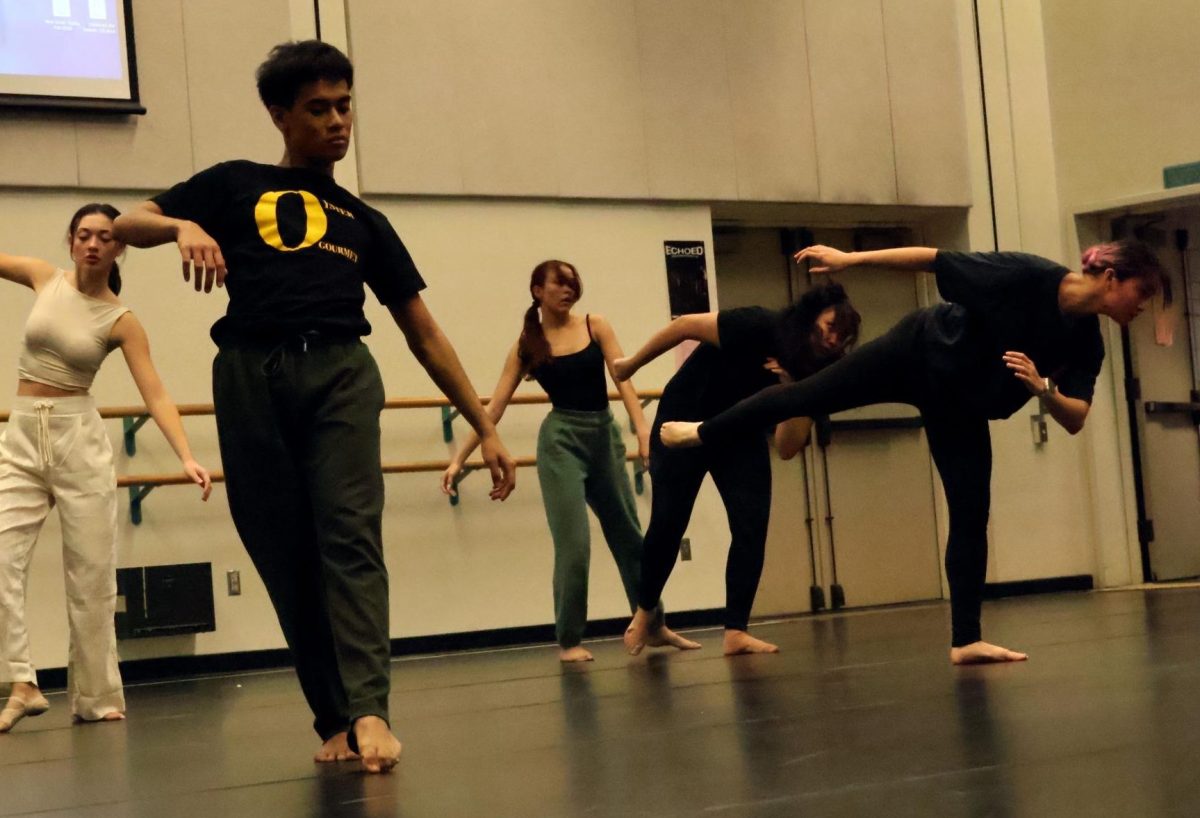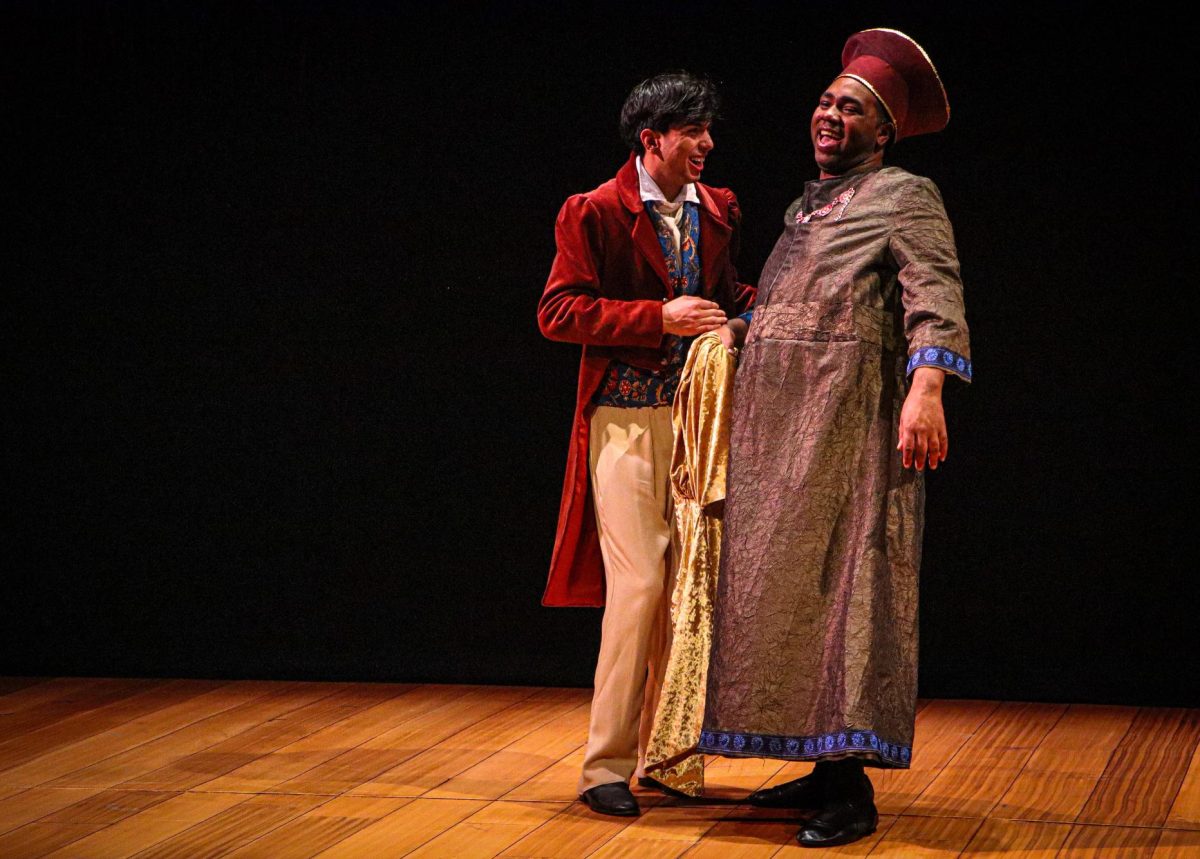Theresa Rebeck’s “Seminar,” a play about writers discovering the intricacies of succeeding in the literary world, is unfolding at the John Wright Theatre. It is a performance that enchants the audience with its crude and earthy exploration of what it means to be a writer in today’s world.
“Seminar,” directed by Brad Myers, balances the tone of its comedy and seriousness with its extraordinary cast portraying each character in their respective mannerisms that are accurate to the source material.
The acting feels as authentic as it can get. The Ginsburg cast in the double-cast show features Carlos Oliviera Sanchez as Martin, Marikah Christine Leal as Kate, Grant Hill as Douglas, Paulina D. Marin-Contreras as Izzy and Terry Lewis as Leonard.
The humor is intelligently crafted. The play is a genuine comedy because audiences have to think about something that the character has said that deliberately makes them chuckle without noticing it.
This is obviously a product of Rebeck’s skills as a playwright but also the actors’ abilities to match certain expressions and synchronize with the audience’s reactions to what they’re doing on stage.
The play itself is an introspective look at the world of writing and a commentary of succeeding in literature as a form of art. It’s one thing to write so others can read, and another thing to write so others can appreciate it as an art. The play establishes that really well as a central theme with the character of Leonard, who takes the audience on a thrilling and wild narrative ride every time the character takes the stage.
It was like a constant anticipation with Lewis’ portrayal of Leonard, as his character determines where the play is going to lead. His is the hand that pulls the strings together and without him, well, the rest of the characters would go nowhere in terms of character development.
The character blocking was executed effectively. When it came to actors transitioning from a dialogue heavy scene to a physically intensive, and sometimes intimate moment, it did not feel awkward.
One thing to nitpick at: the story might be too reliant on the brutalization of its characters for development.
There are some subplot points and events that don’t feel like it would have changed the story or the direction the characters would go, and the only purpose it served was to make the characters more on the edge.
To some degree, characters going through a low point in their lives might create a dramatic spectacle; however, to the extent it went on in the play, it didn’t feel realistic as to how some people would actually respond to such challenges.
It’s as if Rebeck sees everyday people like durable punching bags. In fact, that is part of the message of the story. However, there is still a lack of believability as to how a person would recover from harsh criticism. The characters just simply moved on toward the end.
Overall, Rebeck’s command over language and storytelling is evident in the way she crafts a narrative that seamlessly blends humor and insight with this play. What truly sets this production apart, however, is the outstanding performance delivered by the cast.
















